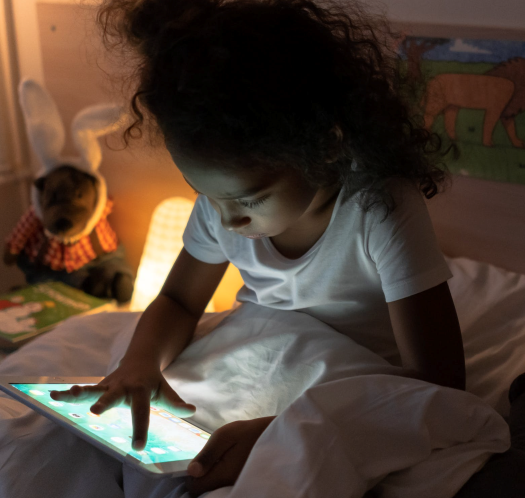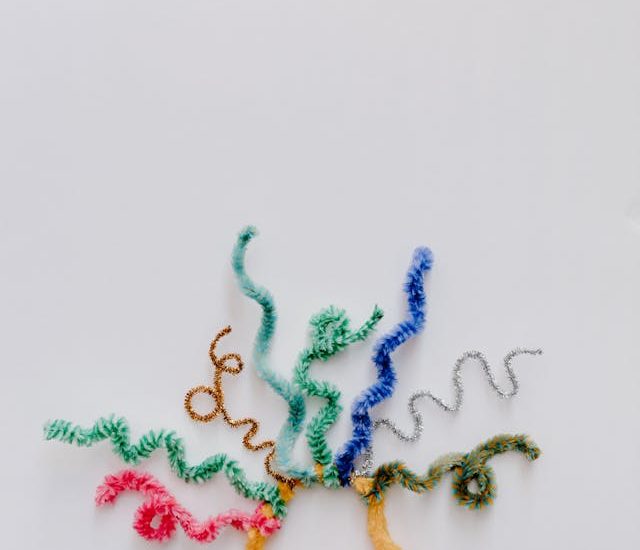Exposure to our devices may accelerate aging

Like many parents, you may be concerned about the effects of using technology—such as tablets and smartphones—right before bed. And with good reason. The Centers for Disease Control and Prevention have publicly stated that exposure to blue light (and white light, which contains blue light) before bed can make it difficult to both fall asleep and stay asleep.
But new research published in the journal Frontiers in Aging indicates that sleep isn’t the only process affected by blue light. The new study, which was done on fruit flies, found that blue light may also accelerate aging by impacting basic cellular functions.
Previous studies on blue light in fruit flies
The team studying the effects of blue light’s short wavelength and large energy products included researchers from Oregon State University, who were piggybacking on similar studies that had identified accelerated aging in the common fruit fly when exposed to prolonged does of blue light. The findings of the previous studies indicated that blue light:
• reduced lifespan
• caused brain neurodegeneration
• damaged cells and tissues—even in mutant flies without eyes
The new research
For the new study, the researchers wanted to know if blue light also impacted basic cellular functions in the common fruit fly, which shares many cellular and development processes with humans.
The researchers kept mutant flies with no eyes in either constant darkness or constant blue light for 10 to 14 days. They then compared the effects on metabolic pathways in non-retinal tissues and found dramatic changes to metabolites in the flies exposed to blue light, including:
• highly elevated levels of vital metabolites, suggesting the flies had developed impairments in their ability to produce energy (immediately)
• reduced levels of some neurotransmitters (which are needed to maintain homeostasis)
• signs of neurodegeneration (later)
According to Jun Yang, first author of the paper and a Ph.D. student at Oregon State University’s Department of Biochemistry and Biophysics, “These metabolites are compounds that are essential for cell functions, not just in flies, but also in mammas. … These changes suggest that cells operate at a suboptimal level, which may cause premature death.”
As Yang explains, most of humans’ exposure to blue light comes from LEDs, the primary illumination of ambient lights and display screens on laptops, smartphones, TVs, and desktop computers.
“It is possible that excessive use of blue light may have a detrimental effect on human cells that are exposed to it, such as skin, sensory neurons, fat cells, and others,” says Yang. “However, it is still necessary to investigate human cells to find out whether similar changes in the level of metabolites are caused by prolonged exposure to blue light.”
Knowing that it’s nearly impossible to avoid blue light, what can you to do limit its effects?
1. Avoid using devices before going to bed.
2. Shorten screen times and take frequent breaks from devices.
3. Dim ambient lights and/or use a “night” setting on devices when available.
4. Avoid using screen time as a reward.
5. Look for ways to replace screen time with healthy activities that include movement and/or time in nature.
MBJ
Wendy Burt-Thomas writes about the brain, mental health, and parenting.
Check out the original research:


